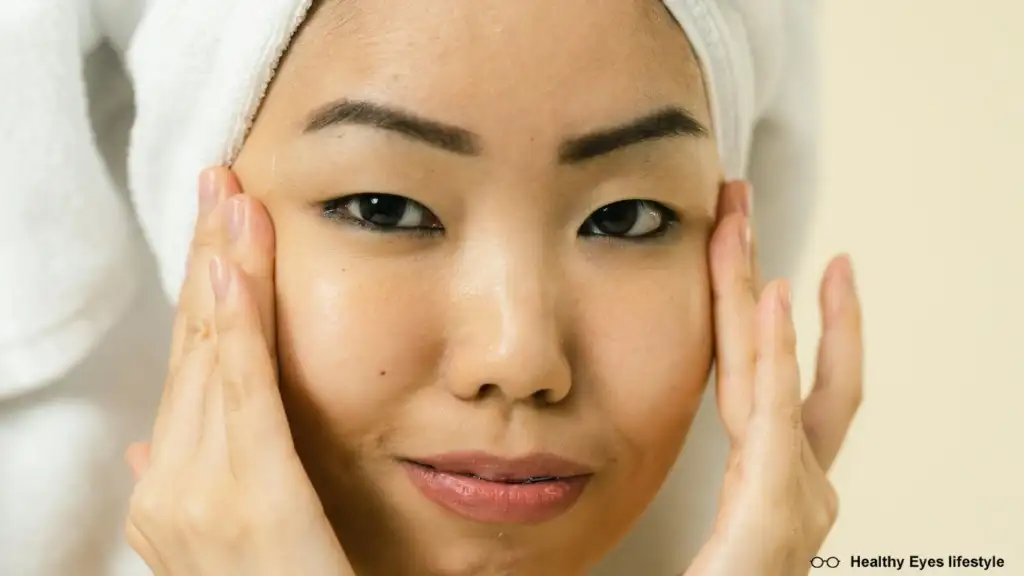Share This Article
Table of Contents
Introduction: Why Dry Eyes Matter
Do your eyes ever feel like they’re burning or gritty, as if you’ve been staring at a screen for hours on end? If so, you’re not alone. Dry eyes affect millions of people worldwide, making simple activities like reading, driving, or even blinking a challenge. This guide is designed to help you understand what causes dry eyes, recognize the symptoms, and explore the most effective remedies. By the time you finish reading, you’ll have actionable steps to take control of your eye health.

What Are Dry Eyes?
Dry eyes occur when your eyes don’t produce enough tears or when the tears evaporate too quickly. Tears are essential for keeping your eyes lubricated, comfortable, and free from debris. When this delicate balance is disrupted, your eyes can become irritated and inflamed.
Key Points to Understand
- Tear Film Structure: Composed of three layers—oil, water, and mucus—that work together to keep your eyes hydrated.
- Common Issue: Dry eyes are not just an annoyance; they’re a medical condition that requires attention.
Causes of Dry Eyes
Understanding the root cause of your dry eyes is the first step toward finding relief. Here are the most common contributors:
Lifestyle and Environmental Factors
- Spending hours staring at digital screens reduces your blink rate.
- Living in areas with low humidity or high wind can dry out your eyes.
- Frequent contact lens use can interfere with natural tear production.
Medical Conditions
- Autoimmune disorders such as Sjögren’s syndrome and lupus.
- Diabetes, which affects tear gland function.
- Thyroid issues that impact the quality of your tear film.

Medications
- Over-the-counter antihistamines can dry out your eyes.
- Prescription antidepressants and blood pressure medications may reduce tear production.
Age and Hormonal Changes
- Hormonal shifts after menopause often lead to reduced tear production.
- Aging naturally decreases tear production, making older adults more susceptible.
Recognizing the Symptoms of Dry Eyes
The signs of dry eyes can vary, but these are the most common symptoms to watch for:
Common Symptoms
- Persistent redness and irritation.
- A burning or stinging sensation in the eyes.
- Sensitivity to light and difficulty focusing.
When to Seek Medical Advice
If you experience severe pain, blurry vision that doesn’t go away, or no relief from over-the-counter treatments, it’s time to consult a healthcare professional. Chronic dry eyes can lead to more serious complications, such as corneal damage.
Home Remedies for Dry Eyes
While medical treatments are often necessary, you can make several lifestyle changes to manage dry eyes at home.
Lifestyle Adjustments
- Follow the 20-20-20 Rule: Every 20 minutes, look at something 20 feet away for 20 seconds.
- Invest in a humidifier to add moisture to the air in your home or workspace.
- Take regular breaks from screens to give your eyes a rest.
Diet for Dry Eye Relief
Your diet plays a significant role in eye health. Incorporating foods rich in omega-3 fatty acids can improve tear quality.
Foods to Include
| Food | Omega-3 Content |
| Salmon | High |
| Flaxseeds | Moderate |
| Walnuts | Moderate |
Easy Hydrating Recipes
| Recipe Name | Ingredients | Instructions |
| Omega-3 Smoothie | Spinach, chia seeds, milk | Blend all ingredients until smooth. Serve chilled. |
| Hydrating Salad | Cucumber, olive oil, nuts | Mix all ingredients and toss with olive oil. Serve fresh. |
Medical Treatments for Dry Eyes
If home remedies aren’t enough, consider these medical treatments:
Over-the-Counter Solutions
- Artificial tear drops that mimic your natural tears.
- Eye ointments for overnight relief.
Advanced Procedures
- Light Therapy: Targets inflammation to improve tear production.
- Scleral Lenses: Special contact lenses that provide a protective, moisturizing barrier.
Preventing Dry Eyes
Prevention is always better than cure. Here are some steps you can take to protect your eyes:
Daily Tips
- Drink plenty of water throughout the day to stay hydrated.
- Avoid smoking and limit exposure to secondhand smoke.
- Wear wrap-around sunglasses when outdoors to shield your eyes from wind and dust.
Eye Hygiene Routine
- Clean your eyelids daily with a warm compress to remove debris and improve oil gland function.
- Refrain from rubbing your eyes, as this can exacerbate irritation.

FAQ: Frequently Asked Questions About Dry Eyes
Can dry eyes cause permanent damage?
Yes, untreated dry eyes can lead to complications like corneal ulcers or infections. It’s important to address the condition early.
Are there natural supplements for dry eyes?
Omega-3 fatty acids and vitamin A are known to support eye health and improve tear production.
How can I manage dry eyes during allergy season?
Use antihistamine eye drops specifically designed for people with dry eyes, and consider wearing protective eyewear outdoors.
Conclusion: Finding Long-Term Relief
Dry eyes don’t have to dictate your daily life. By understanding the causes and symptoms, implementing effective home remedies, and seeking medical treatments when needed, you can take control of this condition. Whether it’s making small changes to your environment or adjusting your diet, every step you take brings you closer to lasting relief. Don’t wait—start prioritizing your eye health today. For more tips and personalized advice, consult with an eye care professional.



